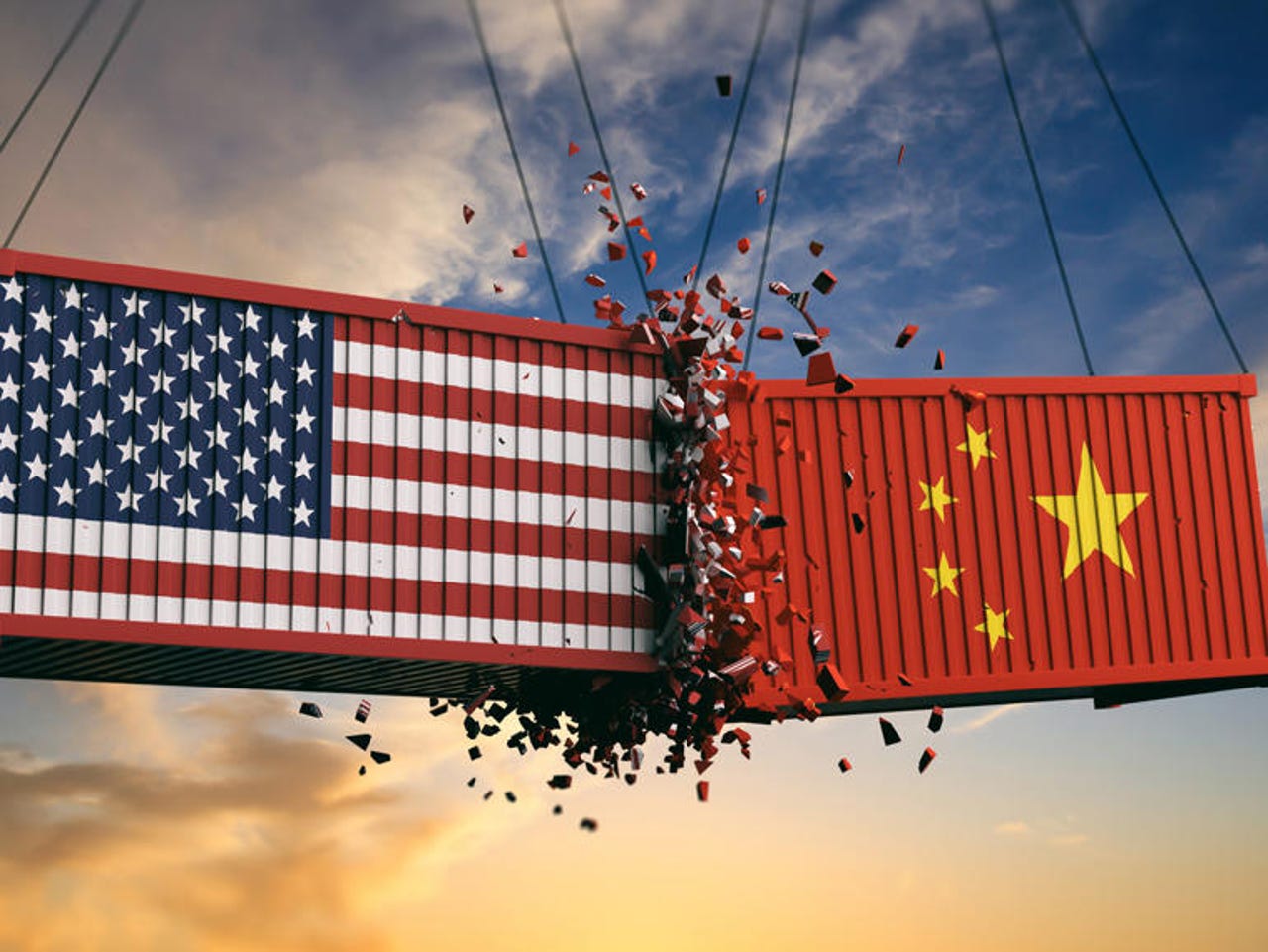S&P warns Huawei ban will hit US tech long-term


Ratings agency S&P has warned that the United States' Huawei ban is more likely to hit US suppliers to Huawei than telcos that will have to spend more money post-ban.
In its report, S&P said the ban could force Beijing to boost Chinese technology investment and reduce reliance on foreign suppliers.
"In turn, this could heighten competition in the technology sector and potentially lower the long-term growth prospects of US technology firms," the report said.
S&P highlighted component suppliers such as Micron, Qorvo, and Lumentum had approximately 15% of their revenue exposed to Huawei, along with Qualcomm which has exposure in the range of 5% to 10%.
"In the next one to two years, we believe US semiconductor firms will take the biggest hit because many of them count Huawei as a key customer," S&P said.
"The ban adds a headwind to an industry in the middle of a correction due to weak demand after a strong 2018, above-average inventories both at manufacturers and in the supply chain, and elevated tariffs on Chinese imports under the current US-China trade dispute."
Also: How 5G network builders are competing with Huawei in Asia
The ratings agency was more sanguine on the impact the ban would have on telcos, and questioned whether Huawei's claimed leadership on 5G would matter.
"Even if Huawei was initially in the lead, we think European and Asian vendors are catching up, and we are therefore cautious about the extent to which Huawei may have a material product or cost advantage," the report said.
"If reports of a 5G gap are true, operators in markets facing Huawei restrictions could theoretically see higher equipment spending or delays in 5G implementation. But given the lack of value-added, 5G-ready use case applications, our forecast for 5G investment and customer appetite is bearish, so any incremental increase cost or delay should be nonmaterial to the ratings."
Even in markets where Huawei has decent penetration, like Europe and Africa, the report said there would be minimal impact from banning the Chinese vendor.
"Due to slower consumer technology adoption and weaker fixed-mobile prospects, we think scaled European 5G deployment will lag that in the Asia-Pacific and US, meaning that we expect rollouts to proceed at a restrained pace until monetizable use cases emerge," it said.
"This should help to minimise the costs and delays stemming from Huawei equipment restrictions. European governments are still debating Huawei bans."
On Apple, S&P said it does not believe Cupertino has the capacity to move its manufacturing out of the Middle Kingdom in the intermediate term.
"Though we believe the short-term consequences for technology and telecom companies are manageable, the long-term stakes, particularly for tech, could be decisive," S&P Global Ratings credit analyst Mark Habib said.
"The consequences for telecom are likely to vary from country to country and largely relate to longer-term 5G investment decisions, which give operators more time and options for managing the fallout."
See: US-China tariffs hit Taiwanese tech industry
At the recent Computex event in Taiwan, a number of component manufacturers told ZDNet they are in the midst of moving manufacturing out of mainland China and onto the island.
In good news for the Chinese giant, last week the Institute of Electrical and Electronics Engineers reinstalled approval for Huawei employees to participate in its processes.
Huawei has filed a motion seeking to have the section of the US's National Defense Authorization Act 2019 (NDAA) affecting it be dismissed as unconstitutional. That section enforces a ban on US federal agencies and their contractors from using Huawei equipment due to security concerns.
In the motion, Huawei argues that section 889 of the NDAA specifically targets Huawei, saying the legislation disrupts the company's existing contracts; stigmatises the company and its employees as supposed tools of the Chinese government; and seriously threatens the company's ability to do business in the US.
"They are using every tool they have, including legislative, administrative, and diplomatic channels. They want to put us out of business," Huawei chief legal officer Song Liuping said in a statement made last month.
Related Coverage
The winner in the war on Huawei is Samsung
Having one of its largest rivals locked out of evermore nations and products would be music to the Korean giant's ears.
Huawei CFO extradition hearing set for January 2020
Huawei reiterates that approving the extradition request is a violation of Canadian law.
Facebook to stop Huawei pre-installing apps on smartphones
Huawei may be left reeling from the latest blow against its reputation and products.
Don't let cybersecurity be driven by fear, warns NCSC chief
Scaring people about cybersecurity doesn't work, says Ciaran Martin - particularly when it comes to 5G, Huawei and China.
China issues 5G licenses to local telcos, TV network
Chinese government awards commercial 5G licenses to the country's three biggest telcos--China Mobile, China Telecom, and China Unicom--as well as state-owned China Broadcasting Network, just as Huawei announces it will be deploying 5G technology in Russia, with tests to start this year.
Huawei's laptop division cancelling orders amid rumors of exiting PC market (TechRepublic)
The well-received Huawei MateBook series may be coming to an abrupt end as rumors indicate Huawei planning to abandon the PC OEM business.
Huawei's "plan B" smartphone OS: What it needs to succeed (TechRepublic)
Component manufacturers around the world are cutting off Huawei following an executive order signed by President Trump. As a result, Huawei's contingency plan may see the light of day.